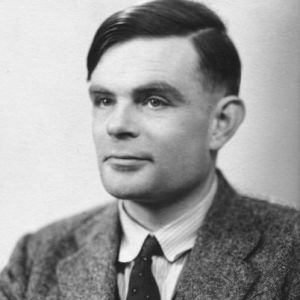Thousands of gay and bisexual men found guilty of decades-old sexual offences in England and Wales have been pardoned, in some cases posthumously.

A new law was enacted by the UK government on Tuesday, allowing men previously convicted of homosexual activity to be pardoned.
One of the most famous and high profile of these cases was that of Alan Turing (pictured), who was a war-time code breaker, and who provided the concept for our modern day computers.
In January 1952, Turing, then 39, started a relationship with Arnold Murray, a 19-year-old unemployed man. On 23 January Turing’s house was burgled. He reported the crime to the police, and during the investigation he acknowledged a sexual relationship with Murray.
Homosexual acts were criminal offences in the United Kingdom at that time, and both men were charged with gross indecency under Section 11 of the Criminal Law Amendment Act 1885. Convinced by the advice of his brother and his own solicitor, Turing entered a plea of guilty. The case was brought to trial on 31 March 1952.
Turing was convicted and given a choice between imprisonment and probation, which would be conditional on his agreement to undergo hormonal treatment designed to reduce libido. He accepted the option of treatment via injections of a synthetic oestrogen; this treatment was continued for the course of one year. Murray was given a conditional discharge.
Turing’s conviction led to the removal of his security clearance and barred him from continuing with his cryptographic consultancy for the Government Communications Headquarters (GCHQ). He was denied entry into the United States after his conviction, but was free to visit other European countries.
In June 1954, Turing’s housekeeper found him dead. A post-mortem examination established that the cause of death was cyanide poisoning. When his body was discovered, an apple lay half-eaten beside his bed, and although the apple was not tested for cyanide, it was speculated that this was the means by which a fatal dose was consumed. An inquest determined that he had committed suicide.
Turing was pardoned in 2013. The new law means those now living can apply for their convictions to also be pardoned. Read more here.





